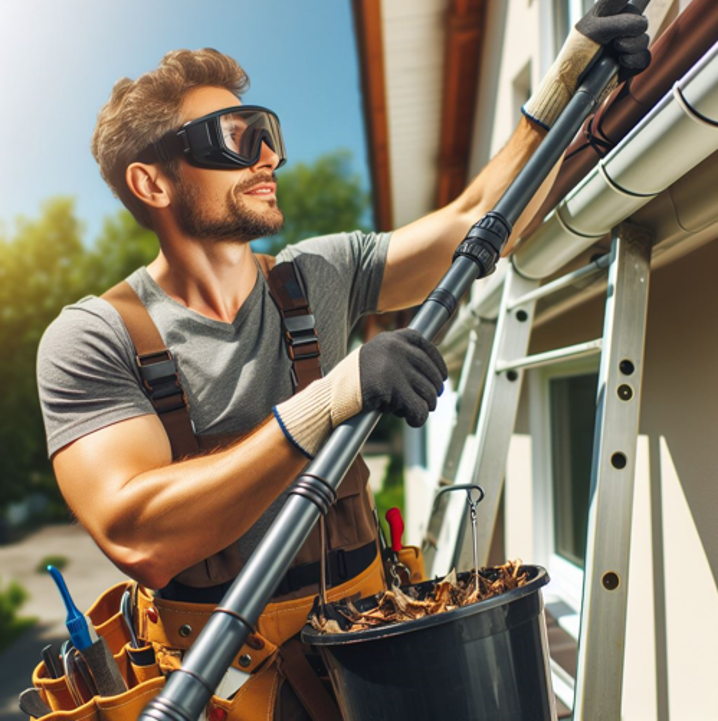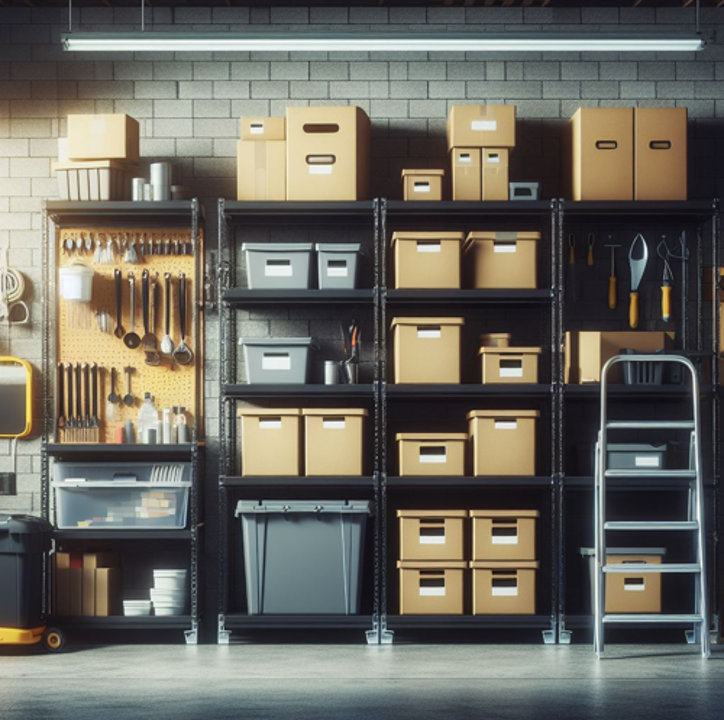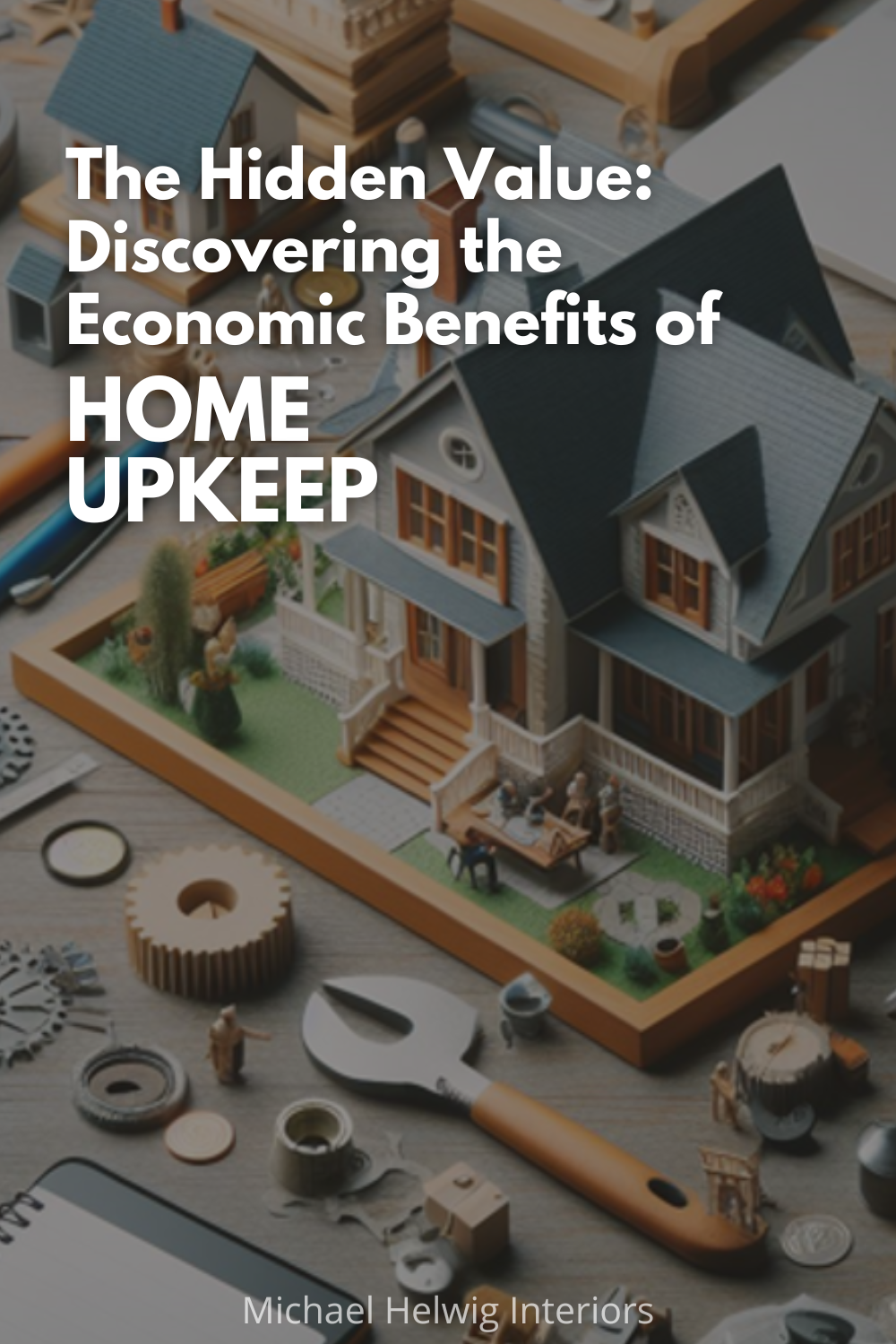Home maintenance, a continual yet sometimes overwhelming responsibility, can put money back in your pocket with the right plan.
Often, homeowners prioritize urgent repairs or cosmetic enhancements, neglecting the always important consistent upkeep - the not so “sexy” stuff. However, regular maintenance can help address immediate issues and uncover some value enhancing opportunities that can make your home’s worth increase over time.
Today I’m covering various aspects of home maintenance and how they contribute to preserving and enhancing your home's economic value.
The Foundation of Home Upkeep: Regular Maintenance
Regular maintenance is crucial for maintaining and enhancing your home's value.
This includes important tasks like gutter cleaning, leak detection, and checking the efficiency of your heating and cooling systems.
Keeping these chores top of mind is important because it wards off the progression of smaller problems that can turn into expensive repairs if ignored.
In fact, regular upkeep ensures that your home keeps a nice-looking curb appeal. And you know what that means? It means that your home will increase in appeal to your local market should you decide to sell.
In other words, consistent maintenance is a strategic approach to safeguarding and elevating your home's value in the real estate market.
How Home Improvement Pros Can Save You Money Long Term
Professional assessments in home maintenance are often indispensable.
If you want it done right, hire a pro. That’s smart advice and it happens to be true.
Pros like electricians and plumbers have real expertise that can uncover problems that stump the average homeowner. Likewise, when it comes to maintaining your roof, consulting local experts such as professional waterproofing contractors in Wellington, FL ensures that local weather challenges are properly addressed and that your home stays protected from leaks and moisture damage.
Their regular attention to your home’s systems can often prevent small problems from becoming costly repairs.
Moreover, they can advise you on enhancements or upgrades that will solve persistent issues. That means you’ll again add to your home's overall value.
• So, schedule a yearly wellness check-up for your HVAC system.
• Keep a watch on little plumbing issues like drips or small leaks and get them looked at sooner rather than later.
• If you notice something going on with your home’s electricity, it’s best to get it checked out rather than to chance it.
This proactive approach is the best approach to maintaining your home's integrity and boosting its worth in the long term.
The Economic Benefits of Home Maintenance
Maintaining your home has several economic benefits, and you can do some of these on your own:
1. Maximize your space by organizing the garage.
Organization goes a long way to maximizing your property value. For instance, organizing your garage into a clutter-free space can enhance your home's functionality and aesthetic appeal. (Not to mention, clearing stuff out will help you actually park your car in it!)
Install storage like shelving to help use the vertical space in your garage for bins and boxes.
You could also give your garage an aesthetic upgrade by installing new flooring and lighting to revitalize it.
These upgrades are great for you in the immediate, but they can also boost the home's resale value. So, make your garage an asset rather than an afterthought.
2. Pay attention to how energy efficient your home is
Energy efficiency is an important and economically savvy part of home upkeep.
Homeowners can significantly reduce their energy consumption and utility bills by upgrading to energy-efficient appliances, installing better insulation, and ensuring that windows and doors are properly sealed.
Simple improvements like these can lead to immediate cost savings for you now and make your home more attractive to buyers who prioritize energy conservation when it’s time to sell.
And the benefits extend beyond financial savings; investing in energy efficiency contributes to environmental sustainability. Embracing energy efficiency now will put in in good stead as the culture becomes even more embracing of these ideals over time.
So, having a plan to increase your home’s energy efficiency will benefit you now and add to the overall appeal and value of your property in the long run.
3. Landscaping: boosting curb appeal and value
Landscaping is more than just beautifying your outdoor space; it's an essential ingredient for enhancing your home's curb appeal and its market value.
Detailed attention to landscaping, which includes regular lawn care, strategic flower planting, and upkeep of pathways and fences, can dramatically transform your property's exterior. If you don’t have much natural grass in your area, you can consider installing synthetic turf.
Good landscaping does wonders for creating a positive first impression.
A well-maintained garden is a reward you get to enjoy now, and it significantly boosts your home’s attractiveness to potential buyers down the road.
So, the bottom line, landscaping isn’t just leveling up your green thumb skills, it’s a critical aspect that combines aesthetics with financial prudence.
4. Preventative Measures: how to “future proof” your home against potential costs.
We’ve all heard about preventative health actions like medical screening tests to prevent or catch illnesses. Well, just like wellness visits to our doctors, our homes need preventive maintenance to shield against future costly repairs.
Regular inspections of critical areas like the roof and foundation and diligent pest control are essential in early problem detection and mitigation.
These early action measures prevent minor issues from turning into significant expenses. Catching little things early is key to preserving your home's structural integrity.
Unlike our ability to tell the doctor where it hurts, your house tells you through signs and symptoms where potential trouble could be forming. So, it’s very important to pay attention to warning signs over the course of the year and different seasons.
Diligence and attention will go a long way toward preserving the longevity and stability of your property.
Preventive maintenance is, therefore, not just about immediate care but also about securing your home's value and functionality for the future.
Takeaway
The economic benefits of regular home upkeep are clear and significant.
With a bit of planning and execution you can significantly maintain and possibly increase the value of your home.
So, use this guide as a checklist to routinely check in with your home’s wellness to prevent little issues from escalating into bigger ones. That way you can ensure that your home remains a valuable asset, not a financial drain.
And ultimately, the thoughtful maintenance that you put into your home today will likely pay off when it’s time to sell in the future.
Read next:
8 Tips To Increase Your Home's Value
Unleash the true potential of your Atlanta home with our game-changing renovation tips! From a fresh, curb-boosting roof to kitchen upgrades that'll have buyers swooning, we're here to help you supercharge your property's value. Get on the path to financial stability and bask in the freedom of living in a more valuable home. Dive into these essential renovation ideas today!
Join the Fun!
If you enjoyed this post and you want to keep seeing my weekly blog, the best way to do that is to subscribe.
You can subscribe by downloading my 11 Secrets Only Designers Know to Make Your Space Rock. If you’re curious about how decorators and designers make a home look magazine ready, you’ll love taking a gander at these 11 secrets. You’ll learn how to style your room from the floor up and it will work for ANY space you have.
I write about small space design and decorating, sustainable furniture options, positive self care and a variety of do-it-yourself home décor.
I’d love to connect with you!
“Michael Helwig was top-notch, very professional and responsive to my needs. He allowed me time to explore ideas and try out a variety of combinations until we found the perfect fit. Michael provided detailed information and offered beautiful ideas to make my dream living room become a reality. The furniture he sourced has totally transformed my living room space. Everyone that has seen my new living room has one word, WOW! A special thank you to Michael for a wonderful experience.”
“Michael was very knowledgeable and guided us, with great patience and good humor, through the process of designing our dining room and helping us find the perfect sleeper sofa. He offered really helpful advice when we asked questions - which was often - but at no time did we ever feel pushed. He helped me when I felt like I couldn’t make one more decision. When my new furniture finally arrived I realized everything down to the pillows was perfect. I couldn’t be happier!”
Michael is Principal designer and blogger at Michael Helwig Interiors in beautiful Buffalo, New York. Since 2011, he’s a space planning expert, offering online interior e-design services for folks living in small homes, or for those with awkward and tricky layouts. He’s a frequent expert contributor to many National media publications and news outlets on topics related to decorating, interior design, diy projects, and more. Michael happily shares his experience to help folks avoid expensive mistakes and decorating disappointments. You can follow him on Pinterest, Instagram and Facebook @interiorsmh.
















